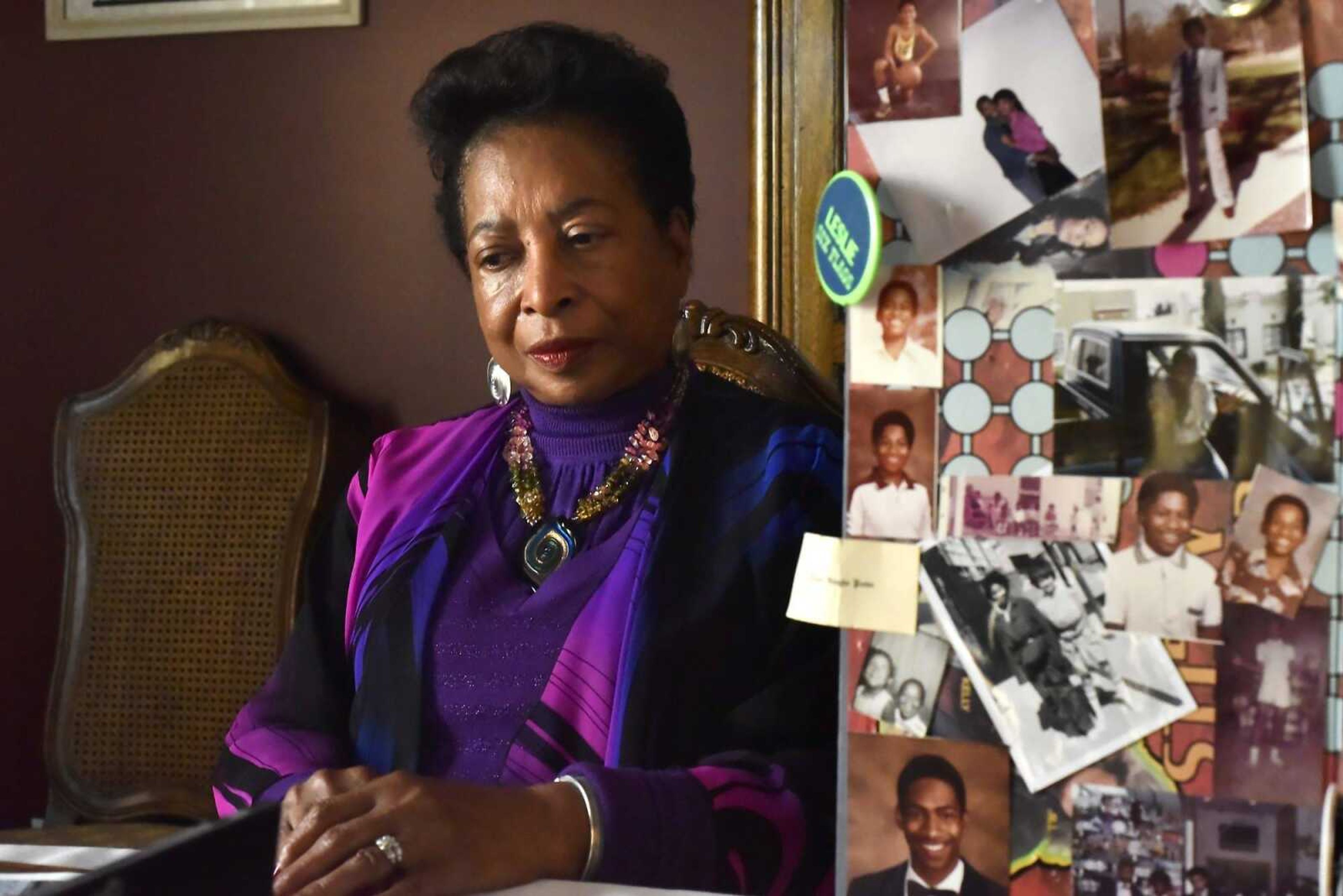Former SEMO dean writes book about police brutality in son's death; book signing set for Saturday
Loretta Prater has turned her grief into words. The former Southeast Missouri State University dean has written a book about her son's death at the hands of Chattanooga, Tennessee, police officers. Prater's book, "Excessive Use of Force: One Mother's Struggle Against Police Brutality and Misconduct," focuses on the death of 37-year-old Leslie Prater, who suffocated after police officers wrestled him to the ground Jan. 4, 2004...
Loretta Prater has turned her grief into words. The former Southeast Missouri State University dean has written a book about her son's death at the hands of Chattanooga, Tennessee, police officers.
Prater's book, "Excessive Use of Force: One Mother's Struggle Against Police Brutality and Misconduct," focuses on the death of 37-year-old Leslie Prater, who suffocated after police officers wrestled him to the ground Jan. 4, 2004.
She and her husband Dwight sued the city of Chattanooga in federal court. The wrongful-death suit was settled in 2006 with the Praters receiving a $1.5 million damage payment. Loretta Prater said it was the largest settlement in the city's history at that time.
Prater will hold a book signing at noon Saturday at the Barnes & Noble book store in Cape Girardeau.
While the book deals with her son's death and the investigation into how her son died, Prater said it also discusses the use of excessive force by police officers in other incidents across the country.
"I feel like this is a big social justice issue, and it's bigger than any one family," said Prater, who lives in Cape Girardeau.
Prater, who is black, said she believes police use excessive force in many cases involving blacks. "It is kind of systemic," she said.
She wrote in her book she "will always believe that if Leslie had been an unarmed, helpless white young man in need of assistance, with everything else being equal, he would have been helped."
She wrote, "I remain tormented by the belief that Leslie's skin color contributed to his death."
Police fatally restrained her son after he was spotted naked on a downtown street. He was unarmed, Prater said.
Two separate autopsies, including one paid for by the Prater family, found Leslie Prater died from "positional asphyxia," a form of asphyxia that occurs when the body's position prevents a person from breathing adequately.
But Prater said she did not want her book to be just an emotional response to her son's death. "I felt like I needed to back it up with research," she said.
She said she hopes her book will shed light for readers on the issue of excessive use of force and police misconduct. "I hope their level of sensitivity will rise," she said, adding that she wants readers to feel "some of the pain" experienced by families who have had relatives die at the hands of police.
mbliss@semissourian.com
(573) 388-3641
Connect with the Southeast Missourian Newsroom:
For corrections to this story or other insights for the editor, click here. To submit a letter to the editor, click here. To learn about the Southeast Missourian’s AI Policy, click here.









